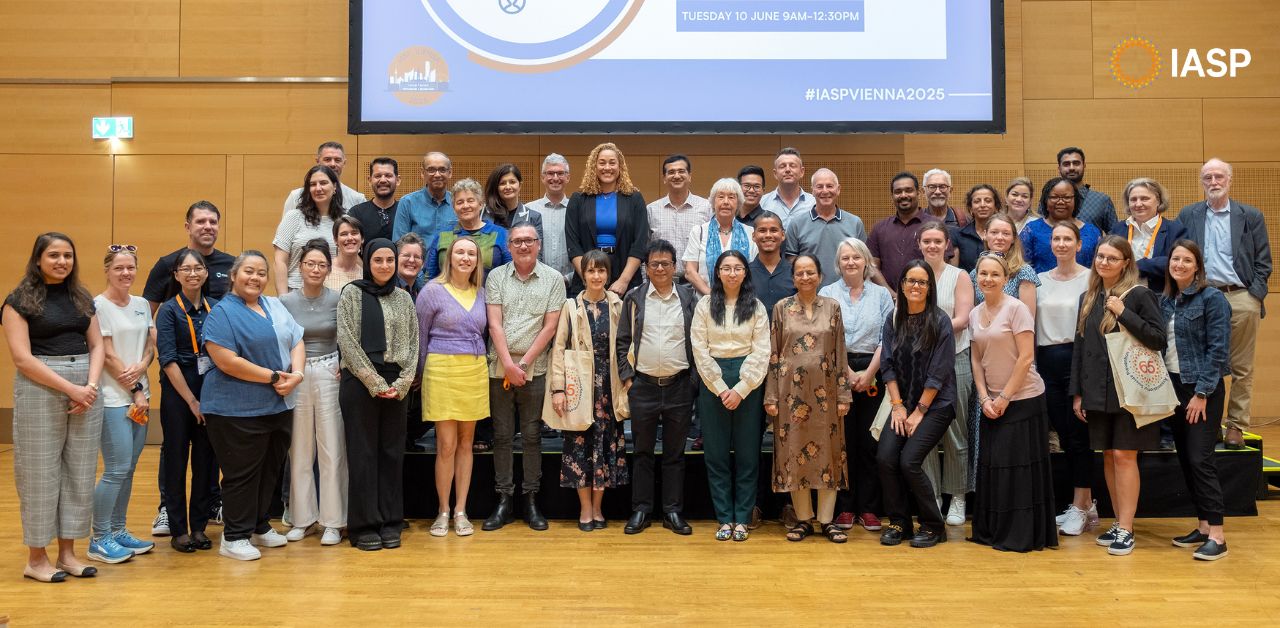The 33rd IASP World Congress in Vienna saw a strong focus on Partnerships for Life’s (PfL) Global Initiative to Prevent Suicide; supporting the development, implementation, and evaluation of national suicide prevention strategies.
More than 50 participants joined the PfL Pre-Congress Workshop, facilitated by Joy Ladurner and Professor Steve Platt, which explored core challenges and opportunities in suicide prevention. Discussions centred on lived experience, mentorship, and collaboration—emphasising the importance of robust data systems, culturally sensitive approaches, and inclusive stakeholder engagement.
A well-attended panel session deepened the discussion, highlighting critical issues such as the need for reliable surveillance systems, addressing stigma, ensuring representation of marginalised groups, and working towards the decriminalisation of suicide. Experts from across all WHO regions stressed the value of regionally tailored approaches, iterative learning, and building government engagement through local partnerships, advocacy, and practical entry points like crisis lines.
The Partnerships for Life: Progress and Challenges from its First Five Years symposium added a broader picture to these discussions, offering regional insights into suicide prevention implementation. Presentations included an overview of PfL’s progress and future directions; the significant implementation barriers faced in South-East Asia; key findings from a 20-country situation analysis across the Americas; the development of a surveillance framework in the Western Pacific region; and the evaluation of Austria’s national strategy as part of the EU Joint Action ImpleMENTAL. Together, these contributions highlighted the urgent need for context-sensitive, well-funded, and multi-sectoral approaches to suicide prevention—particularly in low- and middle-income settings.
Throughout these sessions, a consistent message emerged: collaboration, flexibility, and sustained commitment are key to making progress, especially in low- and middle-income settings. As PfL continues to grow, these conversations are helping shape its next phase, ensuring it remains responsive to the needs and realities of countries around the world.




